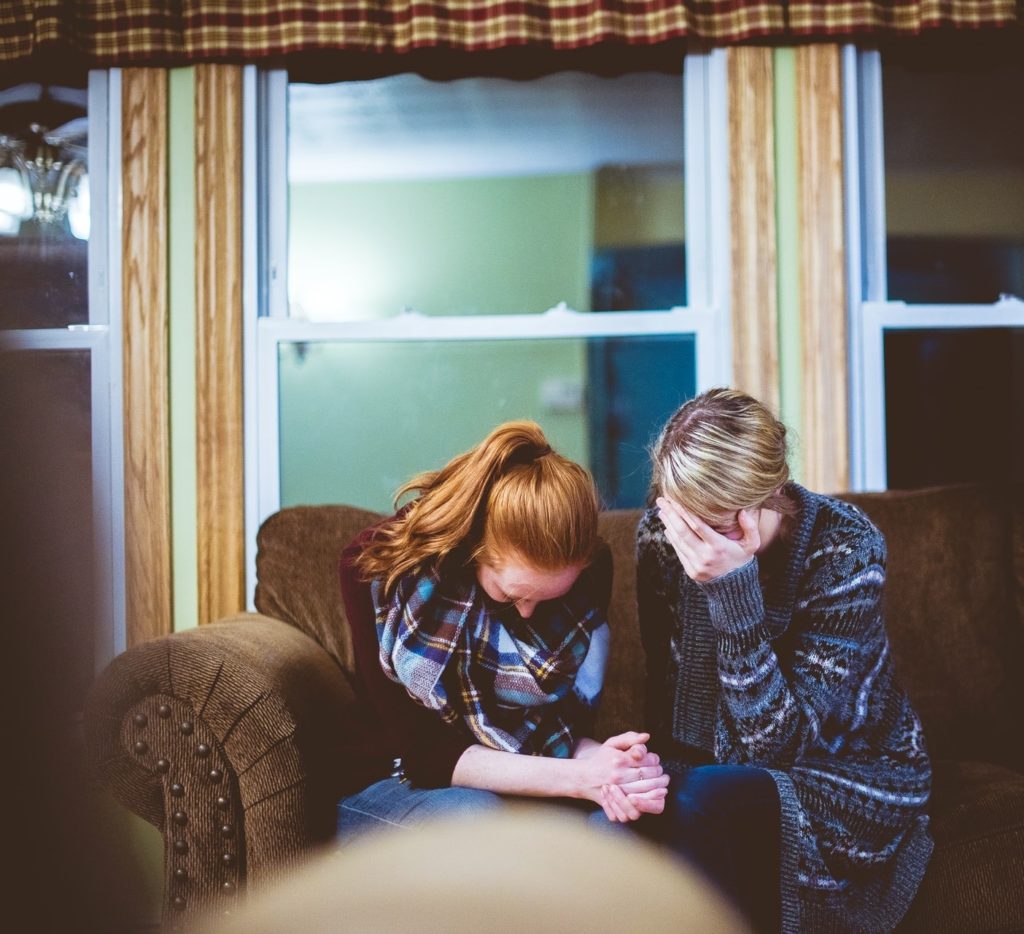Domestic Violence
If you’re facing accusations or charges of domestic violence in Alabama, you risk some serious penalties.
It’s vital to the outcome of your case that you have the quality representation of an experienced domestic violence lawyer.
We appreciate this is an emotional time, but it’s important you keep a clear head and speak with a lawyer before making any statements with law enforcement.
At LaPlante, Merritt, Faulkner, Wilson & Clay, LLC, we believe everyone deserves fair representation. Whatever the charges are against you, we will fight for your rights.
We will always strive to protect your rights and work towards a fair outcome.

What Is the Legal Definition of Domestic Violence in Alabama?
What is considered Domestic Violence in Alabama?
Domestic Violence is an act of violence committed by a person who has a “qualified relationship” with the victim. There are also different degrees of domestic violence. To gain a fuller understanding of domestic violence law in Alabama, one must first start by defining the “qualified relationship” and the different degrees of domestic violence.
A “qualified relationship” for the purposes of Domestic Violence charges exists when the Defendant (the person charged with the crime) and the victim are current or former spouses, have a child in common, currently reside in the same household, or have or have had a dating relationship with one another. A “qualified relationship” also exists when the Defendant is a parent, step-parent, child, or step-child of the victim.
A person commits the crime of domestic violence in the first degree if the person commits the crime of assault in the first degree as defined by Section 13A-6-20; aggravated stalking pursuant to Section 13A-6-91; or burglary in the first degree pursuant to Section 13A-7-5 and the Defendant and victim have a qualified relationship. Domestic violence in the first degree is a Class A felony.
A person commits the crime of domestic violence in the second degree if the person commits the crime of assault in the second degree as defined by Section 13A-6-21; the crime of intimidating a witness as defined by Section 13A-10-123; the crime of stalking as defined by Section 13A-6-90; the crime of burglary in the second or third degree as defined by Sections 13A-7-6 and 13A-7-7; or the crime of criminal mischief in the first degree as defined by Section 13A-7-21 and the Defendant and victim have a qualified relationship. Domestic Violence in the Second Degree is a Class B Felony.
A person commits the crime of domestic violence by strangulation or suffocation if he or she commits an assault with intent to cause physical harm or commits the crime of menacing pursuant to Section 13A-6-23, by strangulation or suffocation or attempted strangulation or suffocation and the Defendant and victim have a qualified relationship. Strangulation is defined as “Intentionally causing asphyxia by closure or compression of the blood vessels or air passages of the neck as a result of external pressure on the neck.” Suffocation is defined as, “Intentionally causing asphyxia by depriving a person of air or by preventing a person from breathing through the inhalation of toxic gases or by blocking or obstructing the airway of a person, by any means other than by strangulation.” Domestic Violence by strangulation is a Class B Felony.
A person commits domestic violence in the third degree if the person commits the crime of assault in the third degree as defined by Section 13A-6-22; the crime of menacing as defined by Section 13A-6-23; the crime of reckless endangerment as defined by Section 13A-6-24; the crime of criminal coercion as defined by Section 13A-6-25; the crime of harassment as defined by subsection (a) of Section 13A-11-8; the crime of criminal surveillance as defined by Section 13A-11-32; the crime of harassing communications as defined by subsection (b) of Section 13A-11-8; the crime of criminal trespass in the third degree as defined by Section 13A-7-4; the crime of criminal mischief in the second or third degree as defined by Sections 13A-7-22 and 13A-7-23; or the crime of arson in the third degree as defined by Section 13A-7-43; and the Defendant and victim have a qualified relationship. Domestic Violence Third Degree is typically Class A misdemeanor but can be elevated to a Class C Felony after subsequent convictions.
Orders of Protection
Our firm can assist you in obtaining a Protection Order under Alabama’s Protection From Abuse Act, sometimes referred to as a PFA order.
If you are a victim of abuse in Alabama you may request a PFA order.
A “victim” for purposes of the Protection from Abuse Act is any person who has a qualified relationship with his or her abuser. A “qualified relationship” for the purposes of PFA orders exists when the abuser and the victim are current or former spouses, have a child in common, currently reside in the same household, or have or have had a dating relationship with one another. When interpreting these factors, it is important to note that a household member does not include non-romantic or non-intimate co-residents and a dating relationship is defined as “a current or former relationship of a romantic or intimate nature characterized by the expectation of affectionate or sexual involvement by either party.” A “qualified relationship” also exists when the abuser is a parent, step-parent, child, or step-child of the victim.
Abuse is defined as “An act committed against a victim, which is any of the following: (1) Arson; (2) Assault; (3) Attempt; (4) Child Abuse; (5) Criminal Coercion; (6) Criminal Trespass; (7) Harassment; (8) Kidnapping; (9) Menacing; (10) Reckless Endangerment; (11) Sexual Abuse; (12) Stalking; (13) Theft; (14) Unlawful Imprisonment; (15) and any other conduct that could be punished as a criminal act in the State of Alabama.
You may request a PFA order in the county where you or your abuser reside, where you are currently located if you left your residence to avoid further abuse, where the abuse occurred, or the county where any civil action (such as a divorce or child custody modification) involving yourself and your abuser is currently pending.
A PFA order entered in any county in Alabama is effective throughout the state.
Any person who is at least 18 years old or has been emancipated and is the victim of abuse or has reasonable cause to believe he or she is in imminent danger of becoming the victim of any act of abuse may request a PFA order.
A parent or legal guardian may petition for relief on behalf of a minor child or any person prevented by physical or mental incapacity from seeking their own order.
For additional information click here.
What to Do if You're Arrested for Domestic Violence

If you are under arrest for domestic violence and taken to a police department it’s essential that you do not say anything about the situation to the police.
Similarly, do not make any formal statements without having a lawyer present. Furthermore, do not say anything about the arrest to any of the arresting officers.
Remember, it’s the police’s job to get you to talk. Ultimately, they will question you. It may feel to you like you’re making the situation worse by not defending yourself, you’re actually helping yourself.
Domestic violence situations, in particular, are emotionally charged. So even if you’re certain you’re not at fault, there is a chance you will say something you may later regret.
If you’re facing arrest, you will be read your Miranda rights. Your Miranda rights clearly state:
“You have the right to remain silent and refuse to answer questions. Anything you say may be used against you in a court of law. You have the right to consult an attorney before speaking to the police and to have an attorney present during questioning now or in the future.
This is the best advice you’ll hear at this point in time. Exercise your right to remain silent and speak with an attorney as soon as you can.
Why You Should Work With a Lawyer for Domestic Violence Charges
You should always work with a lawyer when facing criminal charges to ensure the best outcome in your case. However, for domestic violence charges, it’s even more important.
Domestic violence cases are typically prosecuted very aggressively. Specifically, because there is the possibility of further physical and psychological damage to the victim if law enforcement doesn’t take action.
Courts act proactively to help protect victims of domestic violence. For instance, they will issue protection orders while cases are still under investigation. In the same vein, they will often hold aggressors in jail if they present a potentially serious threat of harm.
If law enforcement arrives at a home due to a claim of domestic violence, they will almost always arrest one party to diffuse the situation.
Working with a domestic violence lawyer with experience maximizes your chance of beating your charges. Or, at the very least help you walk away with the lightest possible sentence.
The state will appoint a lawyer, or the victim will hire one to represent them. However, you will be at a significant disadvantage if you try to represent yourself.
In Alabama, depending on the details of the case, the possible penalties if found guilty of domestic violence are severe.
You face anywhere between 1 year to life in prison, huge fines, and other restrictions and penalties.
Contact Our Law Firm
If you’re facing accusations of domestic violence in Alabama, it’s important you call our offices as soon as possible.
The sooner we can start investigating your case and working on your defense, the sooner we are to build a robust defense.
Call the offices of LaPlante, Merritt, Faulkner, Wilson & Clay, LLC at (256) 236-7354 today. We will schedule a consultation to discuss your case.
